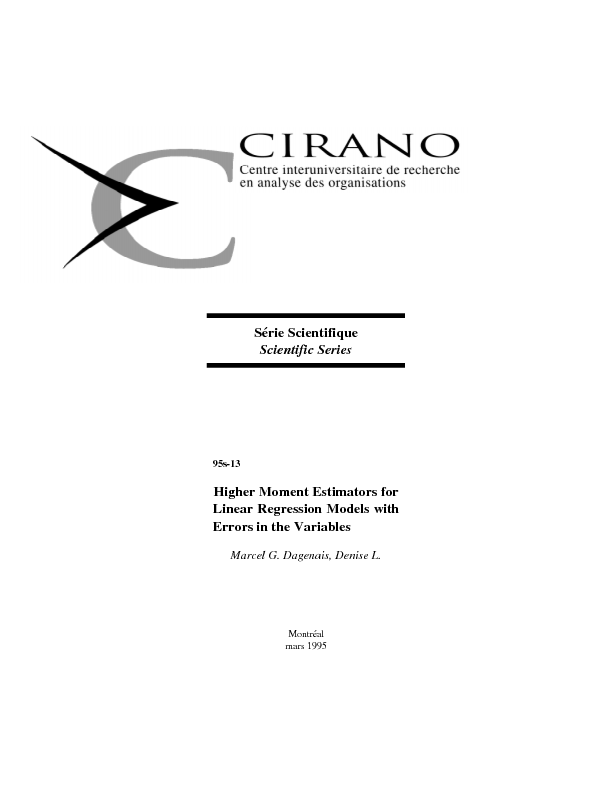Higher Moment Estimators for Linear Regression Models With Errors in the Variables
This paper proposes instrumental variable estimators for multiple linear regression models with errors in the explanatory variables, that require no extraneous information. As is very well known, the ordinary least squares estimator (OLS), which is based on the sample moments of order two, is unbiased when there are no errors in the variables, but it becomes biased and inconsistent when there are such errors [Fuller (1987)]. In contrast, the suggested estimators are based on higher sample moments and can be considered as a special type of instrumental variable estimator. They are consistent, under quite reasonable assumptions, when there are measurement errors. While most consistent estimators based on higher moments (HM) proposed previously in the literature [Geary (1942), Drion (1951), Durbin (1954), Pal (1980)] for regressions with errors in the variables seem to be quite erratic [Kendall and Stuart (1963), Malinvaud (1978)], the suggested estimators appear to perform remarkably well in many situations. Although most data do contain errors of measurement, this fact is often ignored by the analysts and statistical procedures designed for data measured without error are applied. It is shown that ignoring the presence of even small measurement errors and using traditonal OLS estimators may lead to performing standard Student t-tests with type I errors of considerably higher sizes than intended, while this is not so with the proposed HM estimators. Our experimental findings suggest also that even if the sample is not very large, when the errors in the variables are non-negligible, our estimators do perform better than the OLS estimators in terms of root mean squared errors, when the explanatory variables are strongly correlated and the multiple correlation of the regression is high. Such situations are typical of many statistical analyses based on aggregate data. When the multiple correlation coefficient is smaller and the explanatory variables are less correlated, our HM estimators will still outperform the OLS estimator if the sample is large, even if the measurement errors are not very important. Such cases are frequently encountered in analyses of survey data. Tests for the presence of errors in the variables are also described, and the power of the tests are assessed in the Monte Carlo experiments.
[ - ]




